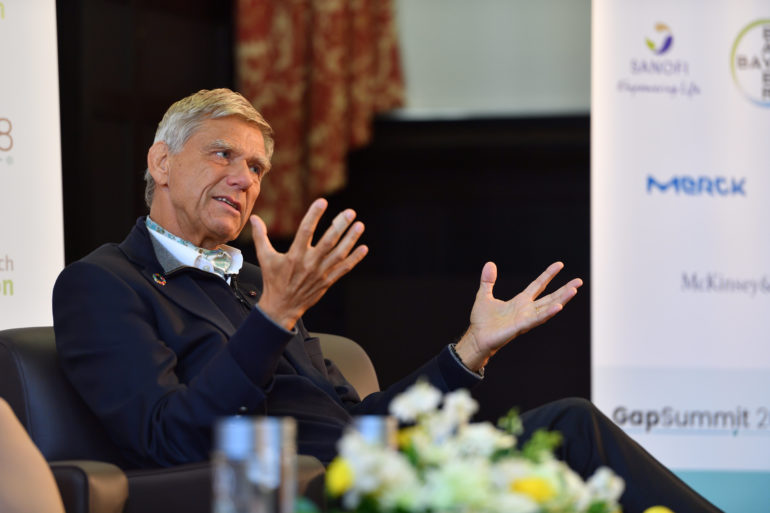LONDON — The European Innovation Council has encountered some early setbacks but is now headed in the right direction, according to a vice chair of the advisory board Hermann Hauser, who became a venture capitalist after helping to set up chip designer Arm.
The EIC has been given 10 billion euros ($12 billion) to invest in European start-ups between 2021 and 2027 as part of the EU’s Horizon initiative. It will invest up to 15 million euros in a particular start-up in exchange for a maximum stake of 10-25%.
“I never thought Brussels would go for this but we are allowed to do equity investments, and this is unbelievable,” Hauser told CNBC from his farm in New Zealand, where he has been stuck since last March as a result of the coronavirus pandemic.
“This is beginning,” said Hauser, who wants to see the money invested in companies focusing on AI, machine learning, quantum computing, and blockchain technologies. “We’ve got start-up problems and I wouldn’t say that it’s a perfectly smooth machine, but it’s beginning to work quite well.”
Hauser said the EIC’s start-up problems existed because it had delays in setting up all the necessary procedures. The fund’s 10 billion euro budget was confirmed in December following a four-year pilot that saw 2 billion euros invested.
The EIC was set up by the European Commission, the EU’s executive arm, to try to help start-ups across Europe to scale up and compete with rivals in the U.S. and Asia, which have spawned several tech giants with market caps that run well into hundreds of billions of dollars.
In the U.S. there’s Google, Apple, Amazon, Facebook, Microsoft, and so on. In China there’s Huawei, Alibaba, Baidu, and others. In Europe, there’s a handful of tech companies valued in the tens of billions — think Adyen, Spotify and Arm — and next to none valued at over $100 billion, except SAP and ASML.
European politicians have also expressed a desire to start sourcing more essential digital services from European companies as opposed to foreign ones.
Turning start-ups into scale-ups
“Europe doesn’t have a start-up problem,” said Hauser, who is also a venture partner in Amadeus Capital in Cambridge. “We produce more start-ups than the U.S. Europe has a scale-up problem and a deep tech finance problem. Both of which are addressed by the EIC.”
So far, the EIC has made 48 investments, spending 180 million euros in the process, according to Hauser. One recipient, French start-up CorWave, is developing pumps that can help people with heart failure.
However, some tech investors and entrepreneurs raised concerns that Brussels doesn’t know how to spot, support and invest in promising start-ups.
Hauser said he had similar concerns: “Of course, the thing that I was immediately worried about was … don’t let the Brussels guys decide who to invest in or not,” he said.
To get around this issue, Hauser introduced a rule that means the EIC fund can only invest in a start-up’s funding round when the majority of the money is coming from private investors.
“It needs the VC community because it’s not allowed to make any investment unless the majority of the money comes from the market,” he said.
Hauser said the EIC also has the advantage of being so close to the well-established European Research Council, which he thinks has backed some of the best tech projects in Europe. “So in terms of the technical due diligence, I think we actually have something to bring to the party for the VCs,” he said.
Biggest deep tech fund in Europe
Hauser said he expects the EIC fund to invest roughly 1.5 billion euros this year and every other year between now and 2027.
“We will be by far the largest deep technology investor in Europe,” he said, adding that the EIC can invest up to 15 million euros in each company. Deep tech start-ups are those focused on developing technology underpinned by substantial scientific or engineering challenges.
Hauser said the EIC will also offer grants to some start-ups alongside the investment that it makes in them.
“Many of our investments are actually blended investments,” he said. “This makes deep technology deals that might be hard to finance in Europe much more attractive because we can sweeten the deal for the VC community to come in,” Hauser added.
But former Andreessen Horowitz investor Benedict Evans, who is now a venture partner at Mosaic Ventures in London, took to Twitter to warn start-ups not to take money from the EIC fund. He raised concerns about how much equity the EIC plans to take in start-ups and said that it “seems like a guaranteed way to kill any companies unwise enough to engage.”
Kerstin Bock, a member of the EIC fund’s investment committee, said the fund has some of the friendliest deal terms for tech founders out there and stressed that 25% is the maximum equity stake that the fund would ever take.
“I think there’s been a little bit of miscommunication from the Commission’s side,” she said.



